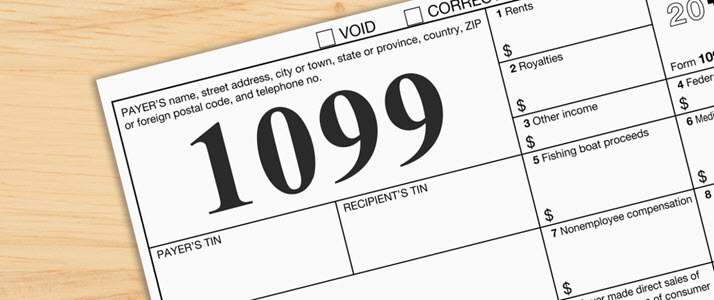
Why is Form 1099 So Important?
Your condo or HOA hired a lot of vendors and made plenty of disbursements this past year. These vendors were not employees of the association yet were paid substantial sums of money over the course of the year for the goods and services they provided. The IRS requires that businesses, even “not for profit” businesses such as condominium associations and HOAs, to provide a record of the monies paid by the business to these vendors by using one variation or another of Form 1099. It’s not just a suggestion; it’s the law! Additionally, depending on what other items the association has paid for, Form 1099 expenses can offset the amount of tax a condominium association or HOA owes.
1099-MISC vs. 1099-NEC:
What Sets Them Apart?
Form 1099-MISC (miscellaneous) is the most familiar form of 1099 that most condo and homeowners’ associations have used in the past. As of 2020, there is a new kid on the block – the1099-NEC (non-employee compensation) form. The new form is used to report self-employment income while the 1099-MISC form is now used to report miscellaneous income such as rent or payments to an attorney. Any expenditures greater than $600 in a calendar year should be reported on a Form 1099 in accordance with IRS rules.
Request a Quote Now!
What Do I Need to Prepare Form 1099?
Accurate recordkeeping is paramount to accurate 1099 preparation. The IRS requires the filer of the 1099 to provide the Taxpayer Identification Number (TIN) for anyone that is to receive a 1099. A best practice is to require that a payee furnish their TIN (often requiring a W-9 with TIN and mailing address) to the payor prior to payment being issued (and updating the accounting system). The more payees, the more records the association must keep. Additionally, vendors that are corporations do not typically have to be reported when filing 1099s. If a condominium or HOA has engaged the services of a management company and that company is issuing payments, they would also incur the burden of filing the 1099s. As you can see, the whole matter can be quite “taxing” if you’ll pardon the pun.
Outsourcing Your Bookkeeping is a Smart Move
For many associations, it just makes sense to outsource this work. Recordkeeping and issuing year-end 1099s without expert help can just be plain tricky. Simple mistakes can cause the association to be outside of compliance and/or miss opportunities to offset their revenue, which can increase their tax burden. Using an outsourced HOA and condominium association record and bookkeeping service like Community Financials is one way to make sure your condominium association or HOA’s 1099s are filed accurately and timely. It reduces risk and can help the association save money.